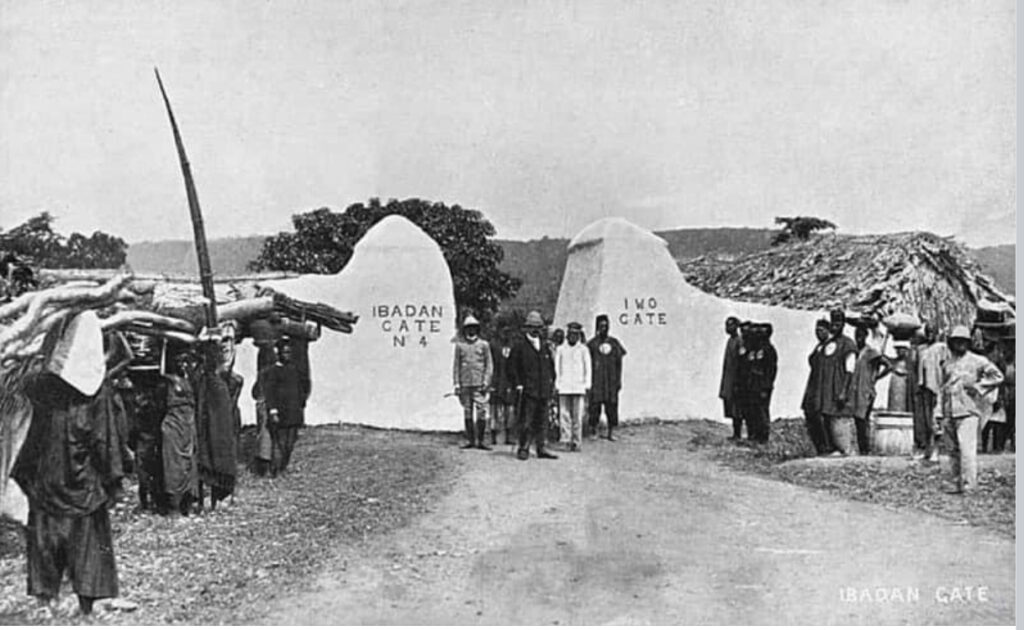
Ibadan Gate No.4 and Iwo Gate – Nigeria, West Africa, 1905.
There were 16 gates to facilitate the movement of traders entering and leaving the city of Ibadan from different places.
Slaves as gate-keepers and toll collectors;
In the nineteenth century Ibadan, and like any other Yoruba State of the period, the Ologun were always in charge of the town gates.
The town gates were massive and the chiefs in most cases had their compounds very close to them. Each of such gates were placed under the watchful eyes of a chief not only for the collection of tolls, but for security purposes.
However, the political and economic functions of the chiefs were not personally performed by the chiefs. Each chief had his representatives in form of his trusted soldier-slaves who collected the tolls.
The soldier-slaves collected the tolls both in cash and kind. The traders paid tolls varying from 40-200 cowries depending on the volume of their merchandise. Those that engaged in farming activities outside the town wall also paid tolls in kind on their return in the evening.
A head or two heads of corn, a handful of beans, a tuber or two tubers of yam and a few other farm products, were some of the articles used for payment of tolls.
It should be noted that the Onibode (gate-keepers), were rarely, if at all, chosen from the freeborn soldiers.
The practice was wide-spread in the Yoruba country that it became an adage ‘a ki fi omoluwabi je Onibode’ meaning that ‘a freeborn is never made a gate-keeper”.
It must however, be emphasised that making gate management and toll collection the exclusive preserve of the soldier-slaves, evidently, did not stem from any contempt felt for them, but from a desire to provide some recompense for their services.
The gate-keepers however, made good of their jobs. They effectively managed all the sixteen gates, possessed by Ibadan.
The number of gates Ibadan had was unprecedented in the history of Yorubaland, hence, people used to say of Ibadan that ‘all towns have four corners, Ibadan alone have sixteen’ (igun merin ni gbogbo ilu nni, merindinlogun ni ti ‘Badan).
Above facts; iosrjournals org.
Photo: Mary Evans Picture Library
Sourced from Nigeria Stories.








